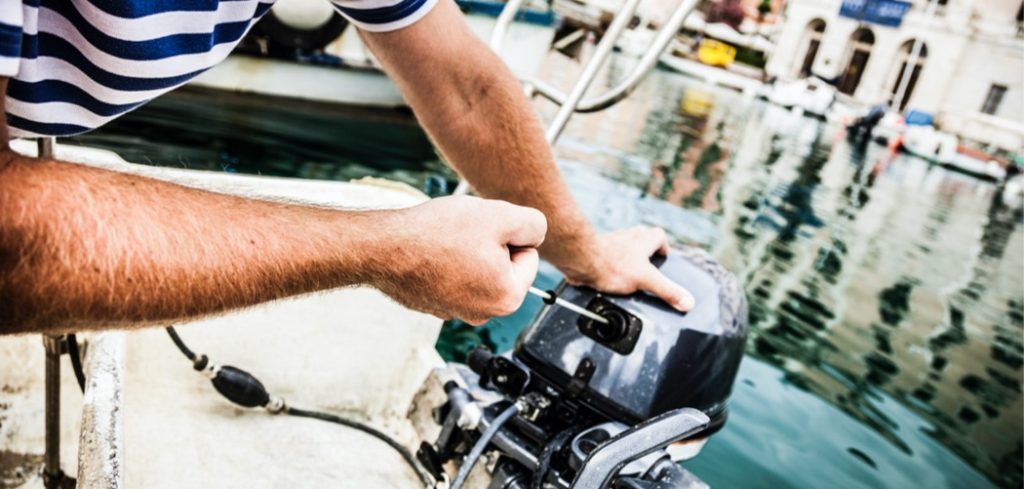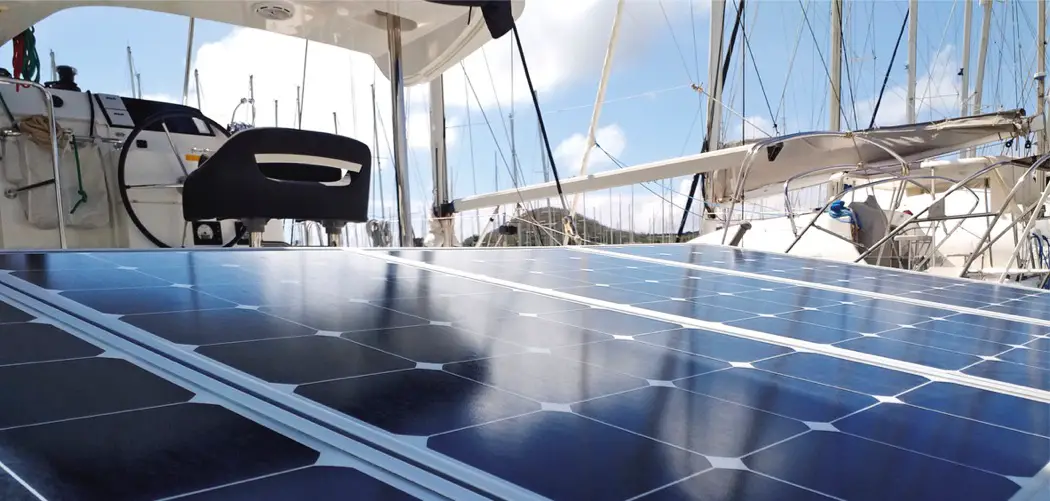Table of Contents
1. Look after your boat engine
- Check for oil or fuel leaks whilst engine is running.
- Check that you have enough fuel and the fuel tank vent is open.
- Inspect all fuel lines or hoses for any cracks.
- Lubricate moving parts with anti-corrosive.
2. Flush your boat engine
The (Marine Warehouse Motor Flusher Dual Feed Round – Check price here) can be used on most inbounds and outboards. It connects to a standard garden hose, and can be easily installed and removed without using any specialist tools. Use this to run a test on your boat motor before you take it out to sea.
3. Check your boat propellor
- Always check and inspect the propellor before you leave.
- Make sure that the propellor nut is tight and secure as the last thing you want is the propellor to zing off in deep waters when you’re miles offshore .
- Look for any obvious damage such as small dents, nicks and dings. These are signs that your propellor has hit something bending, cracking appearing in the blades.
- Remove any stray fishing lines or debris that may have wrapped itself around the propellor shaft.
- Make sure that the propellor shaft is properly greased as this prevents corrosion (I would recommend the Quicksilver 8M0071838 High Performance Multi Purpose Marine Grease – Check price here)
4. Clean and repair your boat upholstery
Boat upholstery gets dirty very fast as sand, mud, dirty water quickly builds up and accumulates especially if you like to go fishing or live in a hot climate. If you let the boat sit for too long dust, mould, mildew and grime will make it more difficult to scrub, clean and maintain.
Maintaining and repairing your boat upholstery is something you need to keep a watchful eye over over the coming months. See below for our best recommendations.
The (3M Vinyl Cleaner and Restorer – Check price here) gives vinyl a protective shine and treatment making it look brand new. It is specially formulated for harsh marine conditions. Simple and easy to use on vinyl, rubber and plastic surfaces.
The (Meguair’s M5716SP Marine Vinyl and Rubber Cleaner – Check price here) gives vinyl a clean, rich and protective shine. Specially formulated to prevent boat surfaces from drying, fading or cracking whilst UV protection reduces damage from the harsh light of the sun. Easy to use and apply on vinyl, rubber and plastics.
Boat upholstery is especially vulnerable to wear and tear as threading may begin to come apart after a while. To fix stitching or seams that are coming apart you’ll need patience, attention and a needle.
To fix tears or holes that you can see on the seat there are many repair kits available online that can prevent the tear from getting much worse.
The (Permatex 81781 Ultra Series Vinyl and Leather Repair Kit – Check price here) can be used to repair holes, tears and gouges in vinyl and leather.




